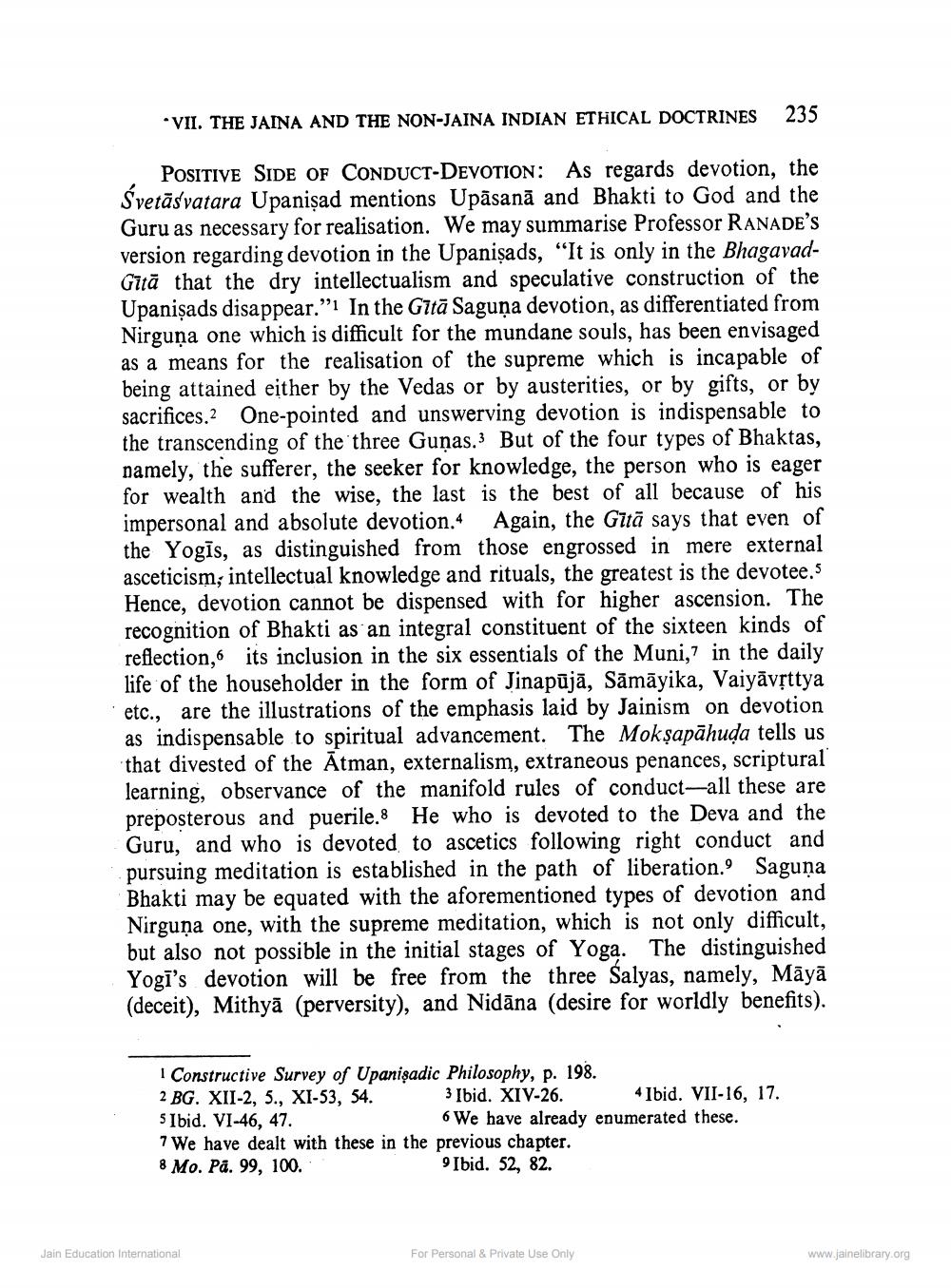________________
VII. THE JAINA AND THE NON-JAINA INDIAN ETHICAL DOCTRINES
235
POSITIVE SIDE OF CONDUCT-DEVOTION: As regards devotion, the Svetāśvatara Upanişad mentions Upāsanā and Bhakti to God and the Guru as necessary for realisation. We may summarise Professor RANADE'S version regarding devotion in the Upanişads, "It is only in the BhagavadGītā that the dry intellectualism and speculative construction of the Upanişads disappear."i In the Gitā Saguna devotion, as differentiated from Nirguna one which is difficult for the mundane souls, has been envisaged as a means for the realisation of the supreme which is incapable of being attained either by the Vedas or by austerities, or by gifts, or by sacrifices.2 One-pointed and unswerving devotion is indispensable to the transcending of the three Guņas. But of the four types of Bhaktas, namely, the sufferer, the seeker for knowledge, the person who is eager for wealth and the wise, the last is the best of all because of his impersonal and absolute devotion. Again, the Gitā says that even of the Yogis, as distinguished from those engrossed in mere external asceticism; intellectual knowledge and rituals, the greatest is the devotee. 5 Hence, devotion cannot be dispensed with for higher ascension. The recognition of Bhakti as an integral constituent of the sixteen kinds of reflection, its inclusion in the six essentials of the Muni, in the daily life of the householder in the form of Jinapūjā, Sāmāyika, Vaiyāvșttya etc., are the illustrations of the emphasis laid by Jainism on devotion as indispensable to spiritual advancement. The Mokşapāhuda tells us that divested of the Ātman, externalism, extraneous penances, scriptural learning, observance of the manifold rules of conduct all these are preposterous and puerile. He who is devoted to the Deva and the Guru, and who is devoted to ascetics following right conduct and pursuing meditation is established in the path of liberation. Saguņa Bhakti may be equated with the aforementioned types of devotion and Nirguņa one, with the supreme meditation, which is not only difficult, but also not possible in the initial stages of Yoga. The distinguished Yogi's devotion will be free from the three Salyas, namely, Māyā (deceit), Mithyā (perversity), and Nidāna (desire for worldly benefits).
Constructive Survey of Upanişadic Philosophy, p. 198. 2 BG. XII-2, 5., XI-53, 54. 3 Ibid. XIV-26. 4 Ibid. VII-16, 17. 5 Ibid. VI-46, 47.
6 We have already enumerated these. 7 We have dealt with these in the previous chapter. 8 Mo. På. 99, 100.
' Ibid. 52, 82.
Jain Education International
For Personal & Private Use Only
www.jainelibrary.org




